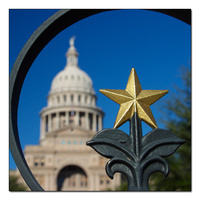SENATOR SHAPLEIGH MEETS WITH PACIFIC NORTHWEST ECONOMIC REGION (PNWER) IN CANADA TO CREATE ALLIANCES ON BORDER TRADE AND COMMERCE
December 4, 2007
"After 9/11, both border have a keen interest in moving people and product faster, safer and smarter. Now is the time to create an alliance since prosperity in all three countries depends on meeting this challenge."
Written by Senator Eliot Shapleigh, www.shapleigh.org

EL PASO – Today, Senator Eliot Shapleigh (TX SD-29) attended the "Canada Border Security Tour," organized by the Consulate General of Canada-Seattle in Vancouver, British Columbia. Senator Shapleigh is Chair of the Border Legislative Conference, a US-Mexico organization of legislators from the 10 border states. From Dec. 4 – 6, Senator Shapleigh is meeting with Canadian officials and business leaders, including the Pacific NorthWest Economic Region (PNWER), to create alliances on border trade and commerce.
"After 9/11, both borders have a keen interest in moving people and product faster, safer and smarter," said Senator Shapleigh. "Now is the time to create an alliance since prosperity in all three countries depends on meeting this challenge."
The PNWER is a public-private partnership composed of legislators, governments, and businesses in the northwest states of Alaska, Idaho, Montana, Oregon and Washington and the Western Canadian provinces of British Columbia, Alberta, and the Yukon Territory.
In March 2008, Texas border mayors and county judges will host a "21st Century Secure Trade Summit" in Austin to create solutions for travel and commerce on the US-Mexico border. The summit was approved unanimously by the Texas Border Coalition (TBC) at its monthly meeting in El Paso on Nov. 28. Regional stakeholders, including representatives from Canada's Western provinces, will be invited in an effort to build a broader alliance around the mid- and long-term goals of a fair migration act, the fast and smart movement of people and products, and technologically advanced border ports of entry.
Short-term issues include enhanced drivers licenses, Freight Highway Administration pilot programs at border ports, and improved port management standards. Mid-term issues include enhanced staffing, accelerated bridge construction, and one-stop inspection stations.
Long-term issues include the adoption of the Border 2020 concept of "Secure, Fast, Smart Movement of People and Products promoting 21st Century Trade," integrated technology and infrastructure, biometric ID for border citizens, ISO 25000 Secured manufacturing tax credits, and a comprehensive "Fair Migration Act of 2009."
"We are here to deliver a positive message for the border," Shapleigh said. "We choose to live here in our border communities. We honor border communities. We are the front doors to a prosperous future."
![]()
![]()
Related Stories